The Federal University of Rio Grande (FURG) is a federal public institution of higher education, recognized in Brazil for its strong focus on coastal and oceanic ecosystems. Its journey began in 1955 with the creation of the School of Industrial Engineering, the first higher education initiative in the city of Rio Grande. This milestone marked the starting point for the consolidation, 14 years later, of the university.
Some of the key historical milestones include:
-
1955 – Creation of the Faculty of Political and Economic Sciences, expanding higher education in the region;
-
1956 – First inaugural class held;
-
1959 – Establishment of the Faculty of Law and the Catholic Faculty of Philosophy of Rio Grande;
-
1960 – Graduation of the first class of Industrial Engineering, composed of six graduates;
-
1969 – Official founding of FURG, integrating these institutions under a new federal university structure.
Since then, FURG has been growing steadily, expanding its reach with new courses, research and extension centers, and extending its presence through advanced campuses in Santo Antônio da Patrulha, São Lourenço do Sul, and Santa Vitória do Palmar.
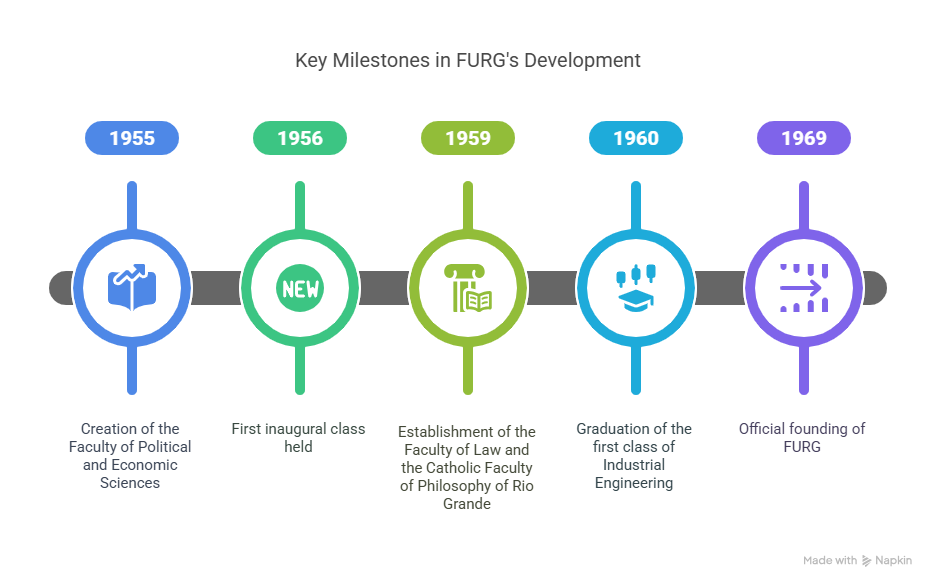
Our Mission
FURG's mission is to educate critical, creative, ethical citizens committed to social transformation through the integration of teaching, research, extension, and innovation. It promotes high-quality, free, and inclusive education based on sustainability, human rights, and social justice.
Our Focus
FURG is one of the few federal universities in Brazil with an institutional focus on coastal and oceanic ecosystems. This is reflected in its academic offerings, research, and extension projects. This strategic orientation is evident in programs such as Oceanology, Coastal Engineering, Marine Biology, and Environmental Management.
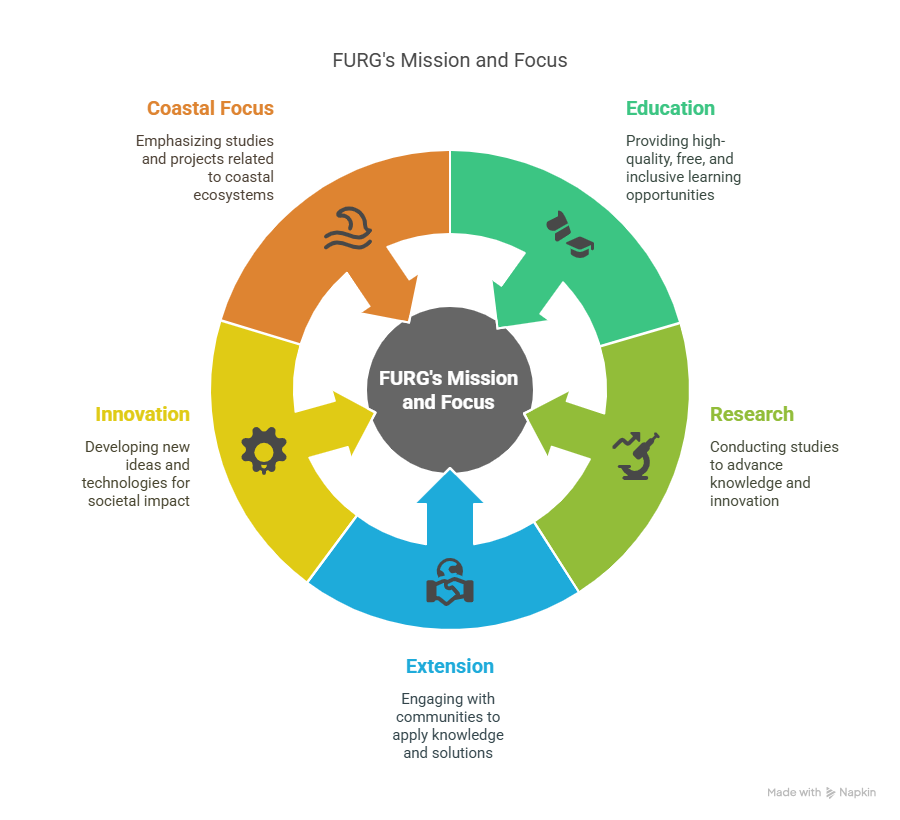
This focus also materializes through structures such as:
-
Oceanographic Museum "Prof. Eliézer de Carvalho Rios" – one of the largest marine science museums in Latin America;
-
Marine Animal Recovery Center (CRAM) – a national reference in coastal wildlife rehabilitation;
-
Interdisciplinary laboratories and research centers dedicated to the management and conservation of the southern Brazilian coast.
FURG in Numbers
Courses
-
70 on-campus undergraduate programs
-
12 residency programs
-
19 specialization (lato sensu) programs
-
35 master's degree programs
-
17 doctoral programs
-
160 research groups certified by CNPq
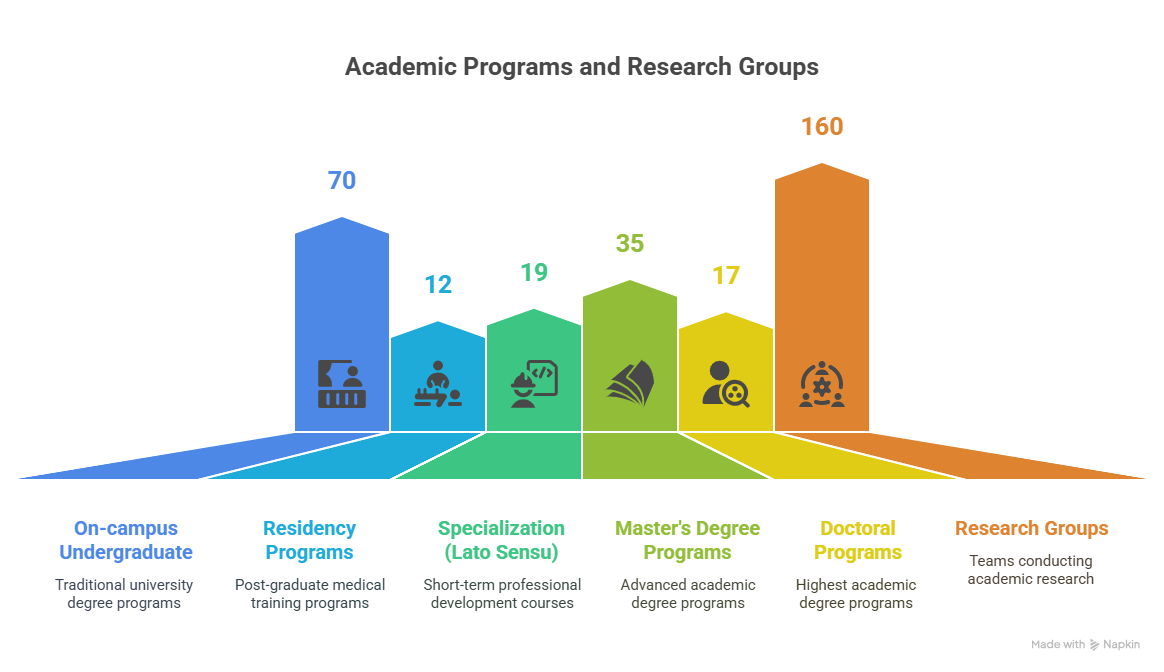
Academic Community
-
Over 7,000 on-campus undergraduate students
-
Over 250 distance learning undergraduate students
-
Around 2,000 graduate students
-
Approximately 860 faculty members
-
Over 1,050 technical-administrative education staff
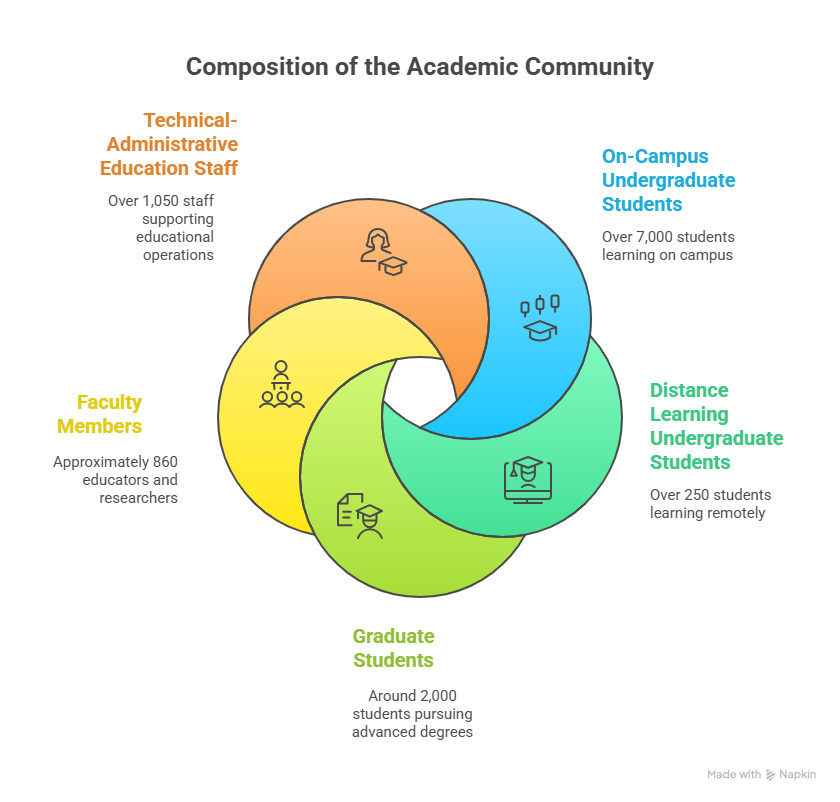
Commitment to Inclusion and Diversity
A pioneer in affirmative action, FURG was one of the first federal universities to implement specific seats for Indigenous and Quilombola students. It also maintains free graduation ceremonies, helping ensure access and retention for students in vulnerable situations.
Innovation and Regional Development
FURG plays a strong role in promoting innovation, supported by structures such as:
-
Oceantec – a technology park focused on the blue economy;
-
INNOVATIO – a center for innovation support and intellectual property;
-
Business and startup incubators.
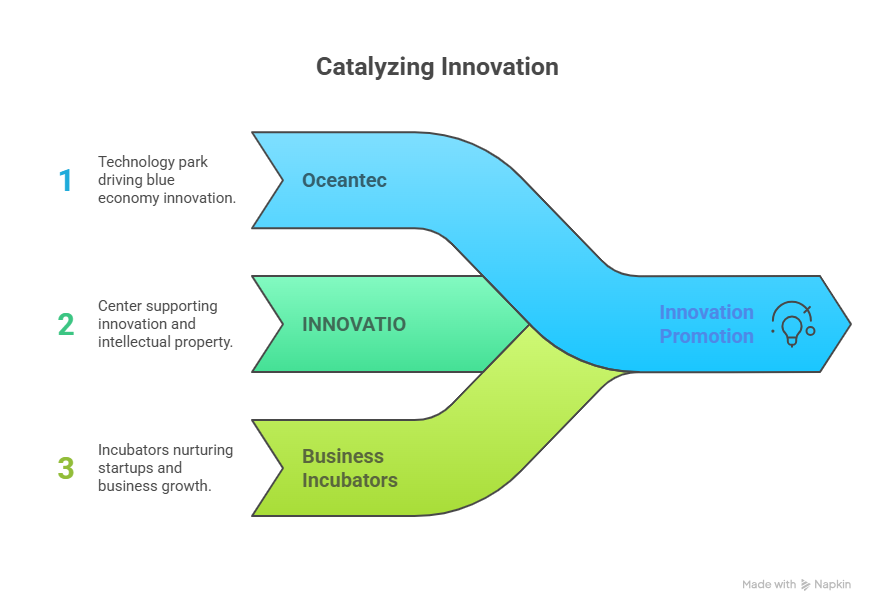
These initiatives strengthen the connection between the university, the productive sector, and society, fostering sustainable regional development.
FURG is more than an educational institution: it is an agent of social, environmental, and scientific transformation. Its commitment to coastal ecosystems and social justice positions it as a strategic hub for southern Brazil and for the communities that are part of it. Educating with quality, researching with relevance, and extending with responsibility are the pillars that support our work.

